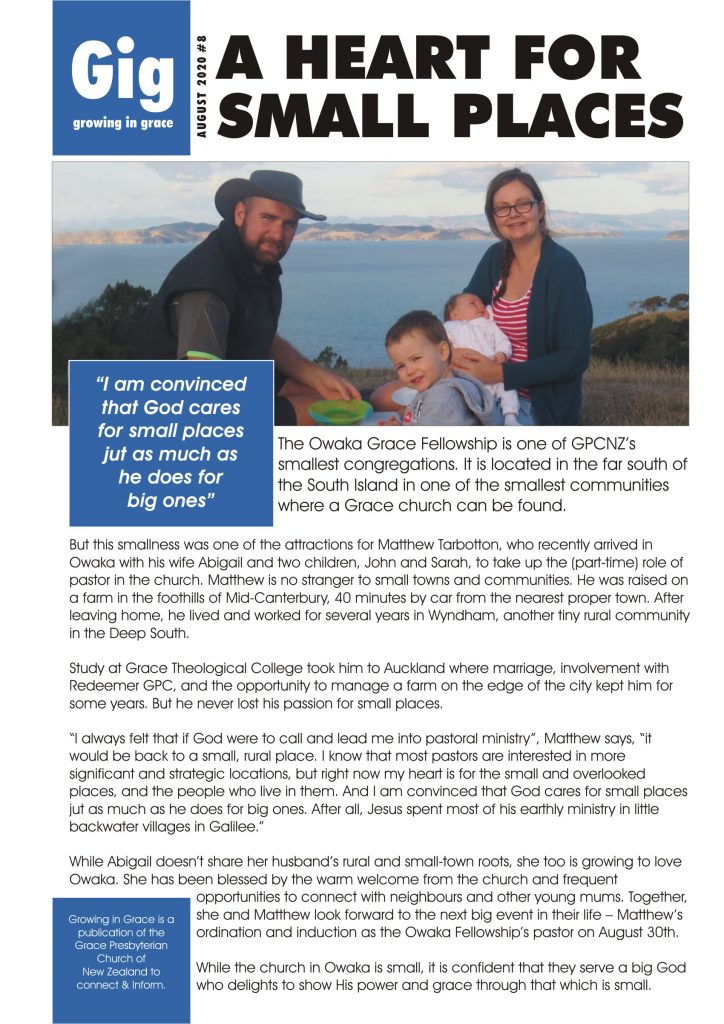As the people of God lose a true sense of who he is, and what it looks like to love him and neighbour, there are many flow-on effects. It can be so easy to relate to God and others on the basis of things that are not actually true. John explains.
Podcast: Play in new window | Download
Judges 10:17-11:28 (ESV)
17 Then the Ammonites were called to arms, and they encamped in Gilead. And the people of Israel came together, and they encamped at Mizpah. 18 And the people, the leaders of Gilead, said one to another, “Who is the man who will begin to fight against the Ammonites? He shall be head over all the inhabitants of Gilead.”
11 Now Jephthah the Gileadite was a mighty warrior, but he was the son of a prostitute. Gilead was the father of Jephthah. 2 And Gilead’s wife also bore him sons. And when his wife’s sons grew up, they drove Jephthah out and said to him, “You shall not have an inheritance in our father’s house, for you are the son of another woman.” 3 Then Jephthah fled from his brothers and lived in the land of Tob, and worthless fellows collected around Jephthah and went out with him.
4 After a time the Ammonites made war against Israel. 5 And when the Ammonites made war against Israel, the elders of Gilead went to bring Jephthah from the land of Tob. 6 And they said to Jephthah, “Come and be our leader, that we may fight against the Ammonites.” 7 But Jephthah said to the elders of Gilead, “Did you not hate me and drive me out of my father’s house? Why have you come to me now when you are in distress?” 8 And the elders of Gilead said to Jephthah, “That is why we have turned to you now, that you may go with us and fight against the Ammonites and be our head over all the inhabitants of Gilead.”9 Jephthah said to the elders of Gilead, “If you bring me home again to fight against the Ammonites, and the Lord gives them over to me, I will be your head.” 10 And the elders of Gilead said to Jephthah, “The Lordwill be witness between us, if we do not do as you say.” 11 So Jephthah went with the elders of Gilead, and the people made him head and leader over them. And Jephthah spoke all his words before the Lord at Mizpah.
12 Then Jephthah sent messengers to the king of the Ammonites and said, “What do you have against me, that you have come to me to fight against my land?” 13 And the king of the Ammonites answered the messengers of Jephthah, “Because Israel on coming up from Egypt took away my land, from the Arnon to the Jabbok and to the Jordan; now therefore restore it peaceably.” 14 Jephthah again sent messengers to the king of the Ammonites 15 and said to him, “Thus says Jephthah: Israel did not take away the land of Moab or the land of the Ammonites,16 but when they came up from Egypt, Israel went through the wilderness to the Red Sea and came to Kadesh. 17 Israel then sent messengers to the king of Edom, saying, ‘Please let us pass through your land,’ but the king of Edom would not listen. And they sent also to the king of Moab, but he would not consent. So Israel remained at Kadesh.
18 “Then they journeyed through the wilderness and went around the land of Edom and the land of Moab and arrived on the east side of the land of Moab and camped on the other side of the Arnon. But they did not enter the territory of Moab, for the Arnon was the boundary of Moab.19 Israel then sent messengers to Sihon king of the Amorites, king of Heshbon, and Israel said to him, ‘Please let us pass through your land to our country,’ 20 but Sihon did not trust Israel to pass through his territory, so Sihon gathered all his people together and encamped at Jahaz and fought with Israel. 21 And the Lord, the God of Israel, gave Sihon and all his people into the hand of Israel, and they defeated them. So Israel took possession of all the land of the Amorites, who inhabited that country. 22 And they took possession of all the territory of the Amorites from the Arnon to the Jabbok and from the wilderness to the Jordan. 23 So then the Lord, the God of Israel, dispossessed the Amorites from before his people Israel; and are you to take possession of them? 24 Will you not possess what Chemosh your god gives you to possess? And all that the Lord our God has dispossessed before us, we will possess. 25 Now are you any better than Balak the son of Zippor, king of Moab? Did he ever contend against Israel, or did he ever go to war with them? 26 While Israel lived in Heshbon and its villages, and in Aroer and its villages, and in all the cities that are on the banks of the Arnon, 300 years, why did you not deliver them within that time? 27 I therefore have not sinned against you, and you do me wrong by making war on me. The Lord, the Judge, decide this day between the people of Israel and the people of Ammon.” 28 But the king of the Ammonites did not listen to the words of Jephthah that he sent to him.




